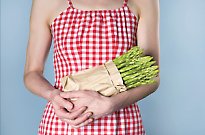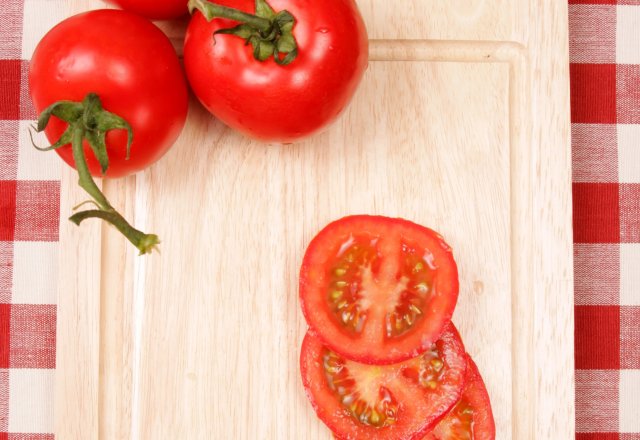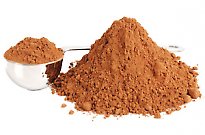
Michael Pollan's Food Rules

Debbie Willimott explores Michael Pollan's Food Rules, a collection of information he has gathered over time from a variety of sources including grandmothers, different cultures, the seasons, folklorists, and traditions.
Debbie Willimott explores Michael Pollan's Food Rules, a collection of information he has gathered over time from a variety of sources including grandmothers, different cultures, the seasons, folklorists, and traditions.
While researching his book In Defense of Food, journalist Michael Pollan realised that what we should eat could be simply summarised in seven words: Eat food. Mostly plants. Not too much. In his latest book, Food Rules, Pollan ‘unpacks’ these seven words into a set of 64 simple adages, designed to simplify our eating practices. The rules aim to painlessly wean us off the Western diet responsible for a wealth of prolific illnesses and onto positive, healthy, simple enjoyable eating habits.
“Eating in our time has gotten complicated,” says Michael Pollan. We’re inclined to agree. Most of us rely on experts, books and TV shows to tell us how to eat. We sit at dinner wondering if we should touch gluten, bin those carbs or eat that melon five hours before everything else.
Pollan reckons we are at a point where we’ve stopped seeing foods – “but instead look right thorough them,” and assures that it is actually entirely possible to eat healthily without knowing what an antioxidant is.
“Human beings ate well and kept themselves healthy for millennia before nutritional science came and told us how to do it,” he says in Food Rules. “In fact, science knows a lot less about nutrition than we would expect. Nutrition science really only got started less than 200 years ago. And so is today approximately where surgery was in the year 1650 – very promising and very interesting to watch, but are you ready to let them operate on you?”
Before scientists, how did we decide what to eat? We were guided by our bodies, our mothers, grandmothers, ancestors, traditions, culture and the seasons.And as such, this is where Pollan has gone to assemble his strategies. He also called on folklorists, anthropologists and even publicised a web address to which people could email their own time-honoured eating customs in an attempt to replace the “the voices of the science and the government” with “the choral voice of popular food wisdom”.
In his book, Pollan presents this wisdom as 64 rules for eating and which get us “off the Western Diet” (i.e. processed foods, meat and added fat and sugar) which, research has shown is responsible for the high rates of so-called Western diseases: obesity, type- 2 diabetes, cardiovascular disease and cancer.
Pollan splits his book into three sections, explaining that it is important to adopt rules from each section “because each deals with a different dimension of your eating life.” We strongly advise going to the book itself – but we’ve taken a selection to give you a taster.
What shouldn't I eat?
In this section, Pollan offers guidelines to help distinguish real food from heavily processed foods – which he calls ‘edible food like substances.’
“Don’t eat anything your great-grandmother wouldn’t recognise as food.” Because more than likely it contains a nasty array of chemical additives and is probably packaged in something toxic. “There are thousands of products in the supermarket that our ancestors simply wouldn’t recognise as food,” says Pollan. Imagine her picking up a packet of cheesy twists, or chocolate covered marshmallows. Would she have a clue what it was? Then you probably don’t want to know either, let alone eat it.
“Avoid food products that contain more than five ingredients.” Because simply put, the more ingredients there are, the more highly processed it probably is, according to Pollan.
“Avoid foods you see advertised on television.”
“Food marketers are ingenious at turning criticisms of their products into new ways to sell,” Pollan explains. “Only the biggest food manufacturers can afford TV advertising and more than two thirds of food advertising is spent on promoting processed foods.”
“Shop the peripheries of the supermarket and stay out of the middle.” As most supermarkets are laid out similarly: processed foods are in the middle, dairy and fresh produce line the outsides. Simple.
“Eat foods made from ingredients that you can picture in their raw state or growing in nature.”
Can you even begin to imagine anything in a Tim Tam growing in the ground? Exactly. This rule keeps a variety of chemicals and processed foods out of your diet, says Pollan.
What kind of food should I eat?
In this section Pollan offers rules to help us choose wisely among the ‘real foods’.
“Eat some foods that have been pre-digested by bacteria or fungi.” According to Pollan, they are an excellent source of B12 (which is an essential nutrient that plants cannot provide but that is in animals) and probiotics that assist digestion, immunity and possibly reduce allergies.
“Eat junk food, as long as you cook it yourself.” There’s nothing wrong with treats, assures Pollan. But as he explains, when manufacturers make it easy for us to obtain them we eat a lot more. Pastries, ice cream, cakes, they are all hard to make. “Enjoy these treats as often as you are willing to make them yourself. Chances are it won’t be every day,” he says.
“Be the kind of person who takes supplements – then skip the supplements.”
“People who take supplements are generally healthier, more health conscious and more likely to exercise and eat whole grains,” says Pollan.
“And in controlled studies most supplements don’t appear to be effective.” You do the math.
How should I eat?
This is all about creating a healthier relationship with what you do eat – “how you eat may have as much bearing on your health and your weight as what you eat,” he claims.
“Pay more, eat less.” Better food – whether that be nutritional quality or taste – costs more, because – says Pollan: “it has been grown or raised less intensively and with more care. If you spend more on better food, you’ll probably eat less of it because it tastes better so you will need to eat less to feel satisfied.” He quotes the old adage, “Better to pay the grocer than the doctor.”
“Stop eating before you’re full.” This idea runs through many cultures – including the Japanese, Chinese and German. “So ask yourself,” says Pollan, “not 'am I full?' but 'is my hunger gone?' That moment arrives several bites sooner.”
“Buy smaller plates and glasses.” The idea is logical: the more there is on your plate, the more you’ll eat. “One researcher found that simply switching from a 12 inch to a 10 inch dinner plate caused people to reduce their consumption by 22 per cent” reveals Pollan.
“Eat meals.” Hmm, sounding a little obvious? Pollan reckons that nowadays it doesn’t go without saying. “We are snacking more and eating fewer meals together,” he says. Researchers report that along with breakfast, lunch and dinner we are adding a fourth daily eating occasion… that lasts all day. We’ve all read that grazing can help boost metabolic rate, but in practice Pollan warns that when eating this way you often end up eating much more and a greater number of processed snack foods. So unless your snacking consists of real foods – stick to the traditional three square.
“Plant a vegetable garden if you have the space and a window box if you don’t.” Pollan believes that growing some of your own food repairs your relationship with food and eating. Being involved in the process of creating one’s own sustenance is a sure-fire way to escape fast food culture, he claims. It reminds us that food is a product of nature, not industry, that food is a form of communion with others not fuel-on-the-go. Plus you’ll save money and get outdoors.
All extracts and quotes taken from Food Rules, An Eater’s Manual, published by Penguin, written by Michael Pollan.
Website: www.michaelpollan.com


